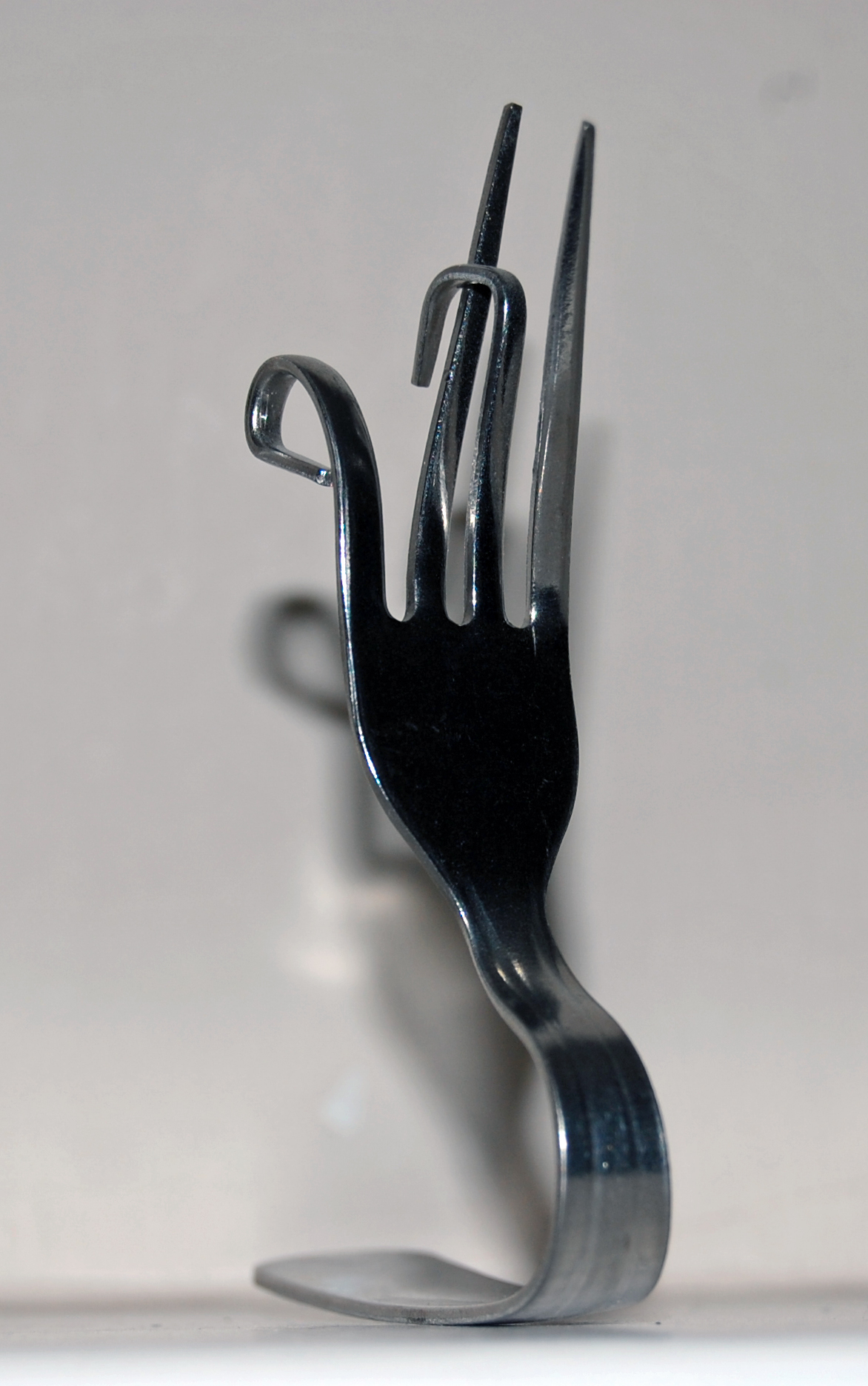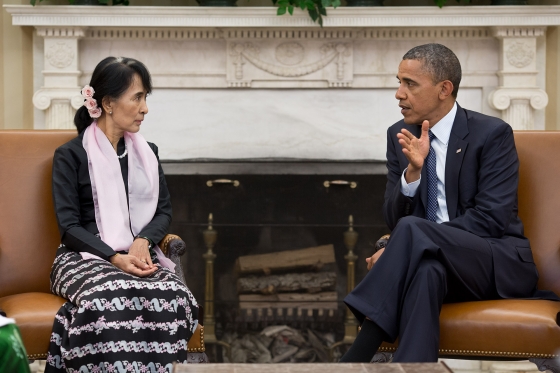…and so little. The screenshots below are from Google News, just minutes ago.
Category: Editor’s Note
Dear Abby,
I’ve read your column for years. Though I don’t always agree with you, I think your insights are valuable because you often help letter writers see their problem from another perspective or at the very least laugh. I often find your comments insightful and enlightening. Unfortunately, your January 6th answer to GENUINELY PUZZLED was truly upsetting.
The letter writer was confused about why a poor young couple with a baby and a toddler who were asking for help near a shopping center would refuse her offer of groceries and request cash instead. Your response assumed that the beggars were frauds who borrowed the children in order to raise more money. It may have been necessary to alert the writer to the reality of professional panhandlers, but it would have been more helpful to also include a charitable alternate view of their situation. Given our current economy, it is not fair to assume that every young family on the streets is there by choice and “doing quite well,” as you wrote.
I have been in Genuinely Puzzled’s situation, and I think she would have appreciated actual advice about how to really help families on the street instead of your professional blow-off. You mentioned that “Some families are truly in need and should be guided to a shelter so they can receive help getting back on their feet.” That is vague pabulum; you failed to suggest any real action that your letter writer (and readers) can take to prepare themselves by contacting local churches and community service organizations to find out what shelters and services exist in their area. Many groups have information cards and service coupons that can be given out instead of cash. Directly supporting such programs through financial support, advocacy and volunteering not only helps people escape homelessness, it can also be rewarding and eye-opening.
This couple said they wanted money to choose their own food and pay their phone bill. It’s their prerogative not to accept a gift that would have been more of a burden than the giver intended. From my conversations with people who are homeless or living in their cars, I have learned that groceries like fresh meat and pasta sauces are useless if you do not have a stove or refrigerator. They either spoil or become one more thing that must be carried. Canned soups like the letter writer mentioned are nutritious but heavy. Daily life in poverty, whether on the streets or in a shelter, is an obstacle course of conflicting rules, laws, schedules and expectations that even college students in a ‘guided experience of homelessness’ find difficult to bear. Your response made it sound as though living on the streets was a career choice, and I will admit that it provoked some rather uncharitable thoughts about you, your career and your privileged background. Then the picture below popped into my Facebook feed and made me think again:
A single advice column can not cure every social ill, and that is not your purpose or your job. Yet it is a shame that instead of educating your readers, you reinforced negative stereotypes that ultimately make it more difficult to provide help to people who have been made poor by circumstances not always within their control. I hope you will avoid this mistake in future columns.
Women Bending Stereotypes

Tonight I was researching (ok, surfing around) and I came across two stories that I really liked. I’d never heard of Issa Rae or her web series The Misadventures of an Awkward Black Girl, but DeNeen L. Brown’s write up has inspired me to bookmark the site and watch. I was struck by Rae’s transition between an idyllic childhood here in Potomac to the challenging tween years in an upscale black Los Angeles neighborhood that ironically made her less comfortable with herself.
…and then there is Jennifer Weiner’s current piece in Allure magazine about The F-Word. No, not that one. The three letter word that rhymes with rat. I have always loved Weiner’s writing; her training as a journalist makes her concise and descriptive and her characters feel like friends of mine. She’s also been pretty clear about her struggles with food, so I wasn’t surprised that she had parenting ideas around the issue of the F-Word. Even so, this story takes very unexpected angle and is worth a thoughtful read.
There’s obviously much to be explored about the interaction between appearance, socialization and self-perception that touches a spark for these two fine artists and all of us. I’ll be sleeping on it, and writing more on another day.
Today happens to be the birthday of Mahatma Gandhi and so it seems appropriate to celebrate one of the fruits of his lifelong dedication to nonviolent social change. According to The Atlantic, his philosophy strongly influences Burmese member of parliament Aung San Suu Kyi and she often quotes him. Her father was the commander of the Burmese Independence Army and was assassinated when she was two. Her mother was a much loved official who eventually became ambassador to India. Inspired by her parents, Aung San Suu Kyi dedicated her life to the people of Burma and spent several years under house arrest due to her activism against the military junta. Like her mother, she is affectionately called “Daw,” a title of respect, and known throughout Burma as “The Lady” due to her grace and persistence.
As her native Burma continues its slow but definite progress towards a thriving democracy, the Nobel peace laureate has used part of her recently won freedom to tour the United States. She has persevered through decades of oppression, house arrest and political struggle in the name of her people. Her opposition to the military junta is rooted in a firm belief that “democracy offers the best balance between freedom and security,” which are both essential human rights.
You can watch part of her Congressional Gold Medal acceptance speech on C-SPAN and read more about her accomplishments and recent travels on CNN.

Yesterday as we left the National Book Fair, my husband and I were able to catch the first few minutes of a speech by Congressman John Lewis, who has authored two books and been the subject of many more focused on his work in the civil rights movement. He opened with a story about raising chickens on the his family farm during his childhood. He had two kinds of hens, layers and setters. The layers laid the eggs, and the setters kept them warm for three weeks. Then newborn chicks would be given to another hen and the sitting hen would be tricked into accepting a new batch of eggs for her nest. Deploying such ruse against a hen is cruel thing to do, but his family didn’t have $18.95 to order an incubator from the Sears, Roebuck catalog, also known as the big wish book.
There were a lot of things Lewis wished for as a child and very little his family could afford. Yet he remembers his days on the farm with fondness and speaks of a childhood blessed with loving, faithful parents who taught him to pray and the art of “making a way out of no way” when ends didn’t quite meet. He learned of the evils of segregation during his first trip to town at the age of six and ached to erase such a fundamental unfairness from that moment on. Even before then, however, Lewis dreamt of being a preacher, and he practiced on his chickens. He and his sister played church and lined the chickens up in rows so he could preach. As he retold the story today, he got laughs by pointing out that the chickens were more productive than Congress.
More importantly for his eventual success, living on a farm and raising chickens taught Lewis to be patient. Nothing happens overnight. It takes three weeks to for a chick to hatch. How many of us understand that today? My eggs come from a cardboard box that is available 24 hours a day, seven days a week from the grocery store, which got it from a truck that picked it up from a distribution center. The distribution center uses other trucks to collect the eggs from the producer whose hen house likely contains thousands of uncaged birds of not hundreds of thousands of caged birds. There’s no six year old boy bonding with these creatures and proclaiming the Gospels before them as they cluck and peck.
Before we nostalgically yearn for those simpler days, let’s be real about the world that John Lewis was born into on February 21, 1940. His mother Willie Mae had ten children, a husband and a large extended family to feed and manage. While there was plenty of love and work on the farm, at that time a black person in Alabama had no functional right to vote. Segregation forced black children to endure separate but unequal schools, restrooms, and pools. Seating rules were enforced in theaters and on buses. Restaurants might serve a black family in a separate section, but more likely they handed food out the kitchen door if they served you at all. So few hotels allowed blacks that driving across the south often meant packing your food and sleeping in the car.
John Lewis lived through all that and the kind of rural poverty that meant you ate what you raised, and if that wasn’t enough, too bad. Somehow, he did not become bitter and angry as so many people might. Instead, he dedicated his life to practicing nonviolence. He studied to be a minister and learned how to create social change through patience and persistence. He grew from a boy who tried to convert chickens to Jesus into a man who is now considered the conscience of Congress.
What was it like to be the mother of that boy? To see your precious child hide under the porch so he could go to school instead of joining his siblings in the fields? In an interview for the Academy of Achievement, Lewis recognized his mother’s struggle:
But I think my mother had a tremendous impact because she knew we needed to get an education, and she would say, “Study, get an education,” but at the same time she was torn. She knew we had to work to help around the house and help gather the crops. And my father and my mother did their best, and when I look back on those early years, I don’t know how they made it. I don’t know how we survived.
Knowing of her son’s aspiration to become a minister and the family’s limited budget, Willie Mae gave John a brochure for the American Baptist Theological Seminary, a school in Nashville which allowed students to work for their tuition. While in Nashville, Lewis became involved in the civil rights movement and eventually got arrested during a 1960 sit-in.
My mother, my dear mother, she was so worried. She was so troubled. She didn’t know that I was even involved, because I hadn’t had any discussion until she heard that I was in jail, when the school official called and informed her that I was in jail with several other students. The next day or so I got a letter saying, “Get out of the movement. Get out of that mess. You went to school to get an education. You’re going to get yourself hurt. You’re going to get yourself killed.” And I wrote her back and said, “I think I did the right thing. It was the right thing to do.” Years later she became very, very supportive, especially after the Voting Rights Act was passed and she was allowed to become a registered voter.
(source: Academy of Achievement)
His mother was right about the dangers: John Lewis was badly beaten on “Bloody Sunday” during the March to Selma in 1965. In full view of cameras, Alabama state troopers and sheriff’s deputies charged and bludgeoned the marchers. Lewis managed to return to the starting point of the march, but he was soon hospitalized with a fractured skull. What was it like to get that phone call?
At one time, Willie Mae Lewis may have wanted nothing more than for her son to quit the movement and get himself a proper, normal, safe ministry in a church. A few weeks later after John Lewis and nearly 25,000 others successfully marched to Montgomery, how did his mother feel? Was that the moment that caused her to finally support his work, or had it come earlier? Perhaps it was in 1963 on the day of the March on Washington, when he gave a speech from the same podium as Martin Luther King, Jr.
Transformation takes time. That is a key lesson of farming, of motherhood, and of citizenship. In his book Across that Bridge: Life Lessons and a Vision for Change, John Lewis writes an entire chapter on the value of patience as a catalyst. It begins with this quote from another mother, one who nurtured the world through her example:
Without patience, we will learn less in life.
We will see less. We will feel less. We will hear less.
Ironically, rush and more usually mean less.
–Mother Theresa
More thoughts soon on how patience and chickens connect to Congress.
I’m a fan of all these writers. I’d love to be as successful as they are but I hope my high school photos remain obscure.
A Legacy of Laughter
Phyllis Diller left our world today at the age of 95, and we are better for having laughed with her.
After several other careers, including raising five children, she became a comic in the mid-1950s on the rising edge of the feminist movement. Until Joan Rivers came along, Diller was mostly alone among the male wolves that prowled the top stages for laughs back then. She defied every rule. At a time when most comics wore suits or at the very least button down shirts, her wild costumes and outlandish wigs made a statement. She wasn’t trying to be one of the guys; she was an uber-woman despite having “two backs” and “chicken legs.” Self-deprecating and witty, she said the things many women were thinking, and laughed along with her audiences.
Boy, did she laugh.
A brilliant gag writer, she maintained a joke file better organized than many libraries. She honed her craft constantly and let the audience be the judge of a joke. If they laughed, she kept it. If not, onto another joke. Her rat-a-tat-tat delivery came with a smile and she was proud of being able to deliver twelve jokes in one minute.
She earned every laugh.
Ok, yes, she dressed like a clown and her costume had the same counter-instinctual purpose. It made the audience drop its expectations and listen. It takes a confident woman to mock herself as relentlessly as Diller did, and smart one to mock the world around her. Diller’s daft housewife comedy wasn’t necessarily social commentary but it pushed boundaries and implied that it was ok to ask questions and forget washing the windows.
Thanks to her, women like Lily Tomlin, Gilda Radner, Whoopi Goldberg, Roseanne Barr, and Samantha Bee built their careers on being female and funny. She was known to encourage rising comics, though she never forgot that “the audience will let you know if you’re funny or not.” One of her best lines was “Aim high and you won’t shoot your foot off.”
Go ahead, laugh with her tonight. The angels are.
[youtube http://www.youtube.com/watch?v=mH66_tFP8VA?rel=0]
(Via 89.3 KPCC, scpr.org)
Women are Rocking London
I thought I was imagining things, but today Sally Jenkins confirmed that winning Olympic gold is women’s work. Mike Lopresti reported that American women have more earned more than twice as many gold medals as the men.
I could list all the challenges women athletes still face even getting to the Olympics. There are plenty, but I think that today is a day to celebrate. Our women’s water polo and soccer teams are both going for the gold tonight. Hear the crowds roar!
I always love to read about the women writers who’ve come before me, so I have to thank Annie Cardi for this post and for turning me on to publicdomainreview.org.

It shouldn’t be dangerous to wear a skirt in daylight in DuPont Circle.
Actually, it shouldn’t ever be dangerous to wear a skirt. Or jeans.
It should not be dangerous to walk while female.
Yet most women take sensible precautions all the time as they make their way through the world. As we choose what to wear, where to meet friends for a drink, when to leave, in the back of our mind we consider whether a given location is safe. Sometimes we think so and find out otherwise. Sometimes we decide to take a risk that turns out to be quite worthwhile. Sometimes we plunge into an experience and discover a wonderful new neighborhood park. Sometimes we find that we have crossed an invisible line into the lion’s den.
Whether statistics bear out our fears or not, we know there are criminals who may attack us at any given time. Many women deal with it consciously by traveling in packs, keeping their keys handy in case they need a weapon or talking on their cellphones loudly so those around them know they are not really alone. We do everything we can think of to protect ourselves and prevent something from going wrong.
And yet does.
In her recent blog post, On the Reverse “10-5 Rule” and Walking While Female, photographer Liz Gorman wrote about a man who sexually assaulted her in broad daylight in DuPont Circle. For those of you not familiar with DC, that is a neighborhood filled with coffee shops and embassies. It is definitely not the Cologne train station at midnight where a similar thing happened to me twenty one years ago.
I was a college student with a Eurail pass and a shoulder bag of clothes. I’d planned to switch trains for Paris only to learn that they were fully booked. It was too late to get a hostel and too dark to explore the city. I wandered around the train station looking for an alternative and witnessed paramedics trying to revive a train conductor on the platform. It did not appear to be a successful effort; I can still see the man sprawled out on his back, immobile in a white shirt and dark pants, his belly swelling out of his clothes, a florescent light shining down on him as we travelers passed by. That fleeting glance made me think of death and escape. I was spooked and determined to get out of that station.
Seeking refuge, I climbed aboard the next train heading west only to have an old man grin madly at me and grab my crotch as he exited the train. His fingers were quite deliberate as he pressed through my jeans, but he didn’t get very far. I shoved him hard and swung my shoulder bag at him before fleeing down the aisle and into a compartment. There were angry shouts in German but no one followed or questioned me. Maybe the person behind him saw the whole thing and set everyone straight. Maybe the old man knew better than to press charges and covered my defense with a lie. I didn’t care; I was just glad to wake up somewhere else the next morning.
Except that memory is still there. I thought of it immediately when I read this column about the many women now telling their stories and that leering face slips by me at least a few times a year.
I don’t think grab & grope sexual assaults are going to magically end just because we’re talking about them. Dirty old men may die but they’ve been with us for centuries. What needs to change is our response when these things do happen.



